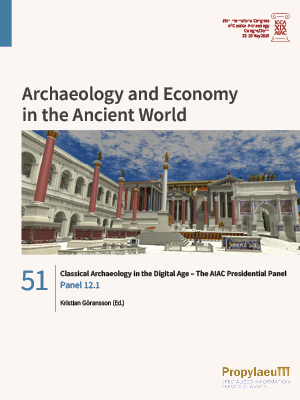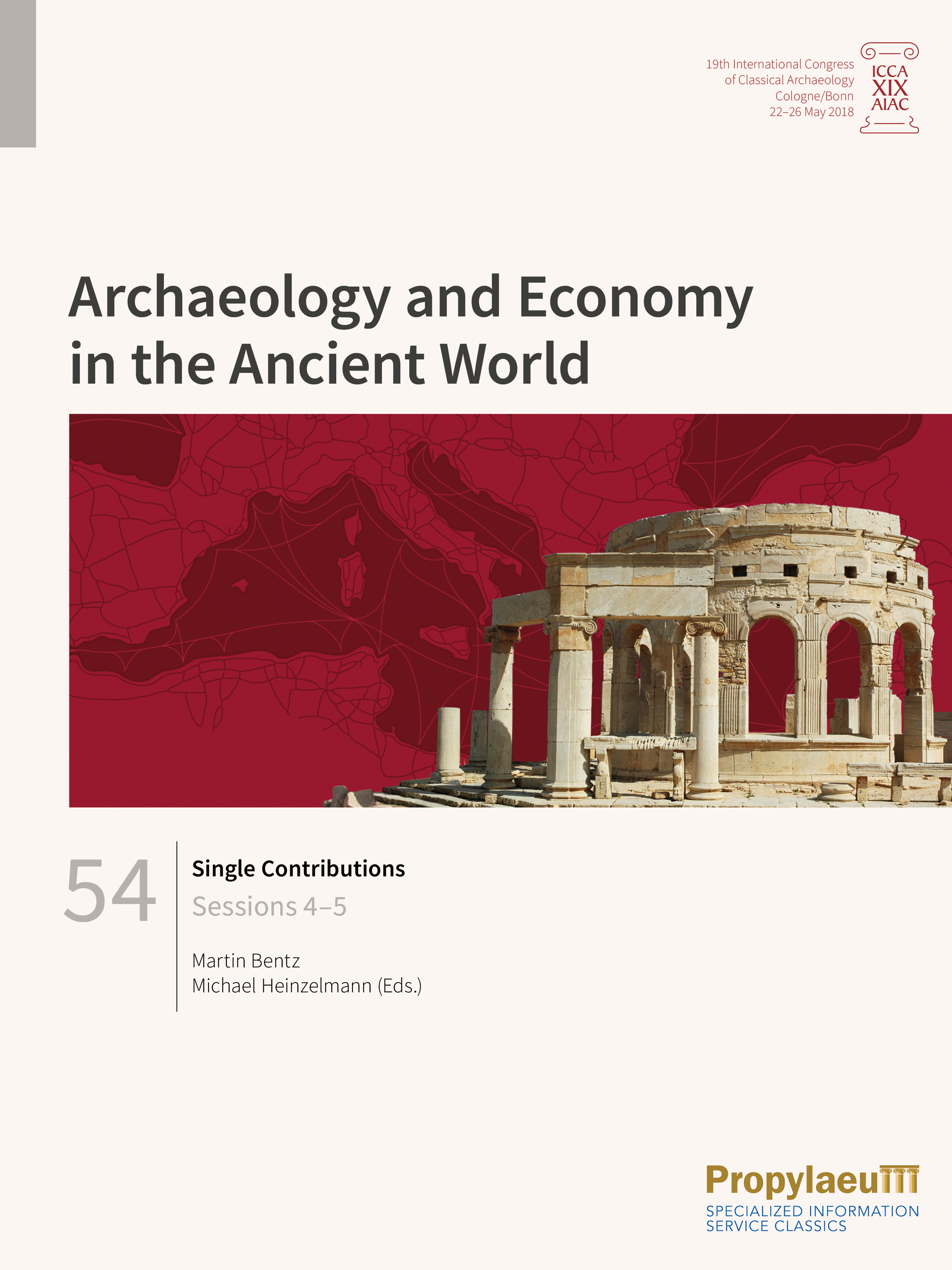Göransson, Kristian
Classical Archaeology in the Digital Age – The AIAC Presidential Panel: Panel 12.1
Classical Archaeology is a discipline which has undergone major changes in recent decades. From its origin as an “Altertumswissenschaft” with a strong emphasis on art and architecture, Classical Archaeology has embraced the most modern methods in field archaeology and analysis of data. The application of digital humanities to Classical Archaeology has changed how archaeologists work, how data is collected and preserved, and how results are made available to the scholarly community and the public in general. The International Association for Classical Archaeology (AIAC) has been a forerunner in digital humanities with the creation and running of Fasti Online and the online peer-reviewed journal FOLD&R. This volume contains papers presented at the panel organized by AIAC in order to present the digital development of the discipline through examples from different countries. It is hoped that the case studies will provide a basis for a discussion on Classical Archaeology in a digital world – benefits, challenges and where the fast development may take our discipline in the future.
Sessions 4–5, Single Contributions
Economic aspects permeate all areas of public and private life in ancient societies, whether in urban development, religion, art, housing, or in death. Research on ancient economies has long played a significant role in ancient history. Increasingly in the last decades, awareness has grown in archaeology that the material culture of ancient societies offers excellent opportunities for studying the structure, performance, and dynamics of ancient economic systems and economic processes. Therefore, the main objective of this congress was to understand economy as a central element of classical societies and to analyse its interaction with ecological, political, social, religious, and cultural backgrounds. The theme of the congress was addressed to all disciplines that deal with Greco-Roman civilization and their neighbouring cultures from the Aegean Bronze Age to the end of Late Antiquity.
In this collective volume, single contributions of sessions 4 and 5 deal with questions on the exploitation of resources such as metals and marble in the Roman imperial period and also on distribution, trade and networks in general in antiquity. Thematically, the studies range from trade and cultural contacts in the Iron Age and Archaic Mediterranean, Greek and Roman coinage, to Roman trade and transport systems.








